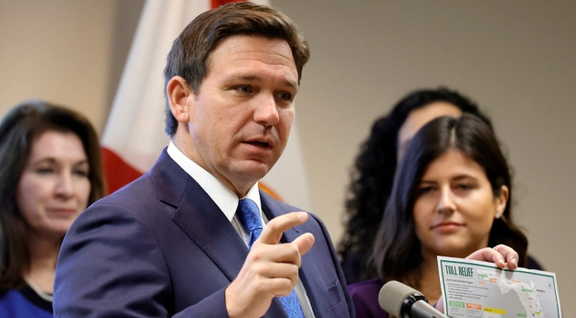DeSantis’ Decision Puts Nearly 1 Million Florida Children at Risk of Hunger This Summer

A recent decision by Governor Ron DeSantis has left nearly one million children in Florida facing hunger this summer. The governor chose not to extend federal pandemic relief funds that provided essential food assistance to low-income families, sparking widespread concern and criticism.
The federal relief program, known as the Pandemic Electronic Benefit Transfer (P-EBT), was a lifeline for many families during the school closures caused by COVID-19. It ensured that children who relied on free or reduced-price school meals continued to receive nutritional support even when schools were closed. However, with the end of the school year and no extension of the program in sight, many families are now struggling to provide adequate food for their children.
“Governor DeSantis’ decision is devastating for countless families who depend on these benefits to feed their children,” said Lisa Williams, director of a local food bank in Miami. “We are already seeing an increase in demand for food assistance, and it’s only going to get worse.”
Advocates for children’s welfare and anti-hunger organizations have been vocal in their opposition to the governor’s decision. They argue that the P-EBT program is crucial for addressing food insecurity, particularly during the summer months when children do not have access to school meals.
“Florida’s children are at risk of going hungry because of a political decision,” said Dr. Sandra Wilson, a child nutrition advocate. “This is not about politics; it’s about ensuring that our children have enough to eat.”
The DeSantis administration defended the decision, stating that the focus should now be on returning to normal operations and encouraging economic recovery. A spokesperson for the governor said, “We believe that resources should be directed towards getting people back to work and ensuring a strong economy rather than continuing emergency measures indefinitely.”
Despite this stance, the reality for many families is stark. With rising food prices and economic challenges, the loss of P-EBT benefits places a significant burden on low-income households. Many parents are now turning to community resources such as food banks, which are already stretched thin.
Local organizations are rallying to fill the gap left by the discontinued program. Schools, churches, and non-profits are organizing food drives and distribution events to help feed children during the summer. However, these efforts, while commendable, are not enough to fully address the widespread need.
The issue has also caught the attention of state legislators, with some urging Governor DeSantis to reconsider his decision. “This is a matter of public health and welfare,” said State Senator Annette Taddeo. “We cannot let our children go hungry. We need to find a way to provide for them.”
As the summer progresses, the impact of this decision will be closely monitored. Families, advocates, and policymakers alike are hopeful that a solution can be found to ensure that no child in Florida has to go hungry.




